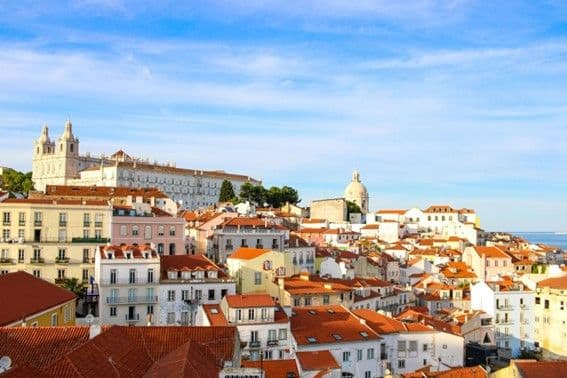Portugal Ranks as 7th Most Popular Destination for Digital Nomads Globally
A combination of favorable legal structures, affordable living costs, and high-quality connectivity has solidified Portugal's position as a leading destination for remote workers worldwide. The ongoing remote work revolution has established the country as one of Europe's most attractive hubs for digital nomads, who are drawn by its quality of life, safety, natural environment, and a particularly advantageous legal and tax framework.
According to the Global Digital Nomad Report 2024, compiled by the consultancy Global Citizen Solutions, Portugal is now the 7th most sought-after destination in the global ranking for digital nomads. The report highlighted the country's exceptional performance in specific categories, placing it 3rd for the benefits offered by its visa and 9th for overall quality of life. The study emphasized that Portugal is the most affordable country in Western Europe, a key factor for many remote professionals.
A significant element of Portugal's appeal is the D8 visa, which is specifically tailored for remote workers. This visa is highly regarded because it provides a clear pathway to long-term settlement; time spent in the country under the D8 visa counts towards an application for permanent residency and, ultimately, Portuguese citizenship. This has proven to be a powerful incentive for individuals looking to establish a stable base in Europe.
The effect of this popularity is evident in the growing international communities in major cities. According to data from the Nomad List platform in 2023, more than 16,000 digital nomads are currently residing in Lisbon. Official figures indicate that approximately 2,500 D8 visas have been successfully issued, confirming the program's strong uptake.
Need Expert Guidance?
Get personalized insights from verified real estate professionals, lawyers, architects, and more.
While urban and coastal centers like Lisbon, Porto, and Ericeira continue to be the primary magnets for remote workers, a new trend is emerging. A significant number of digital nomads are now choosing to settle in Portugal's inland regions. This movement, which some are calling a “digital rural exodus,” is driven by a desire for a more affordable and sustainable lifestyle. These new residents are contributing to the development of regenerative rural living models.
This trend is creating new dynamics in these areas. Samuel Delesque, a tech entrepreneur and the co-founder of the Traditional Dream Factory (TDF), a pioneering regenerative project in Abela, Alentejo, commented on this shift. “Living in harmony with nature can be as practical as it is inspiring, and the growing interest in natural environments reflects the values that many remote workers seek: sustainability, a sense of community, mental well-being, and connection with nature,” he told the publication Publituris.
The influx of digital nomads is creating distinct impacts on the national real estate market. In urban centers, it has increased demand for rental properties equipped for remote work. In the countryside, it is revitalizing local economies and creating new demand for property, from traditional village houses to larger rural estates suitable for community projects. This demographic shift presents a range of new opportunities for property owners and investors across Portugal.
Get expert guidance for international property buyers at realestate-lisbon.com.






